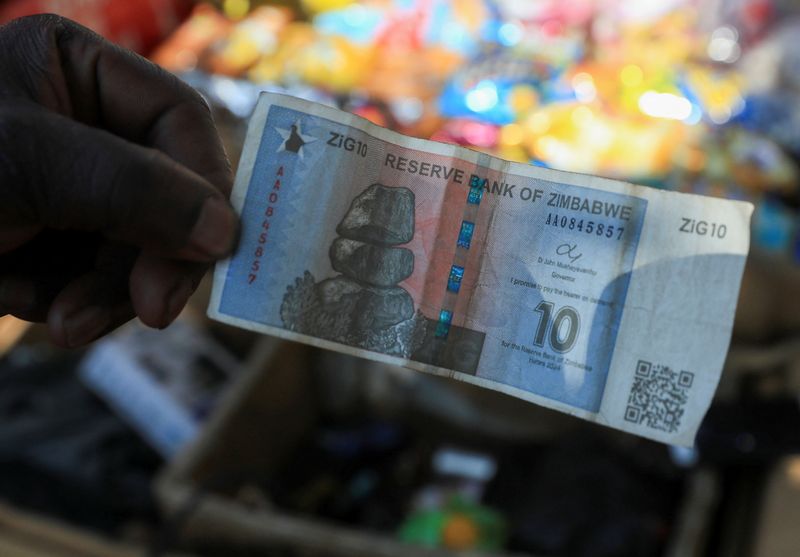By Nyasha Chingono
HARARE (Reuters) – Five months after its launch, Zimbabwe’s new currency is under pressure as increased grain imports eat away at foreign reserves, threatening the government’s plan to make it the only currency on the market by 2026.
The gold-backed ZiG, which stands for Zimbabwe Gold, is the country’s sixth attempt at a stable currency in fifteen years. It was introduced in April at a rate of 13.6 ZiG per US dollar and has since lost almost 80% of its value on the black market.
Independent economist Prosper Chitambara said the devaluation reflected a lack of confidence in the new currency, which locals were reluctant to embrace.
Perseverance Gwanyanya, a member of the Reserve Bank of Zimbabwe’s Monetary Policy Committee, told Reuters that while the rollout has been slow, it was too early to consider the new currency a failure.
Gwanyanya said the government could increase the use of the ZiG by imposing more taxes in the local currency. “The government should prefer its own currency more than any other government and there is an urgent need for intervention by injecting more foreign currencies into the market,” he said.
But market traders are not convinced.
“The ZiG has become weaker, so it makes no business sense to transact with it. I have no confidence in the ZiG. We have been here before with the Zimdollar,” said Maynard Maketo, a street vendor selling sweets and top-up cards . .
According to Pricecheck, a website that tracks exchange rates, the ZiG trades between 20 ZiG and 26 ZiG at $1 on the black market and 13.9 ZiG to $1 on the official exchange.
Carol Munjoma, a trader in central Harare who sells groceries, deals exclusively in US dollars.
“Where I buy these groceries, they don’t accept ZiG. So to protect my business I charge in US dollars. The ZiG would have to be stable to be accepted here,” said the mother of two.

In July, central bank chief John Mushayavanhu told Reuters that authorities would stick to promises to build confidence in the new currency, a sentiment also echoed by Gwanyanya.
“It is too early to consider that this could be the death of the ZiG,” Gwanyanya said.


